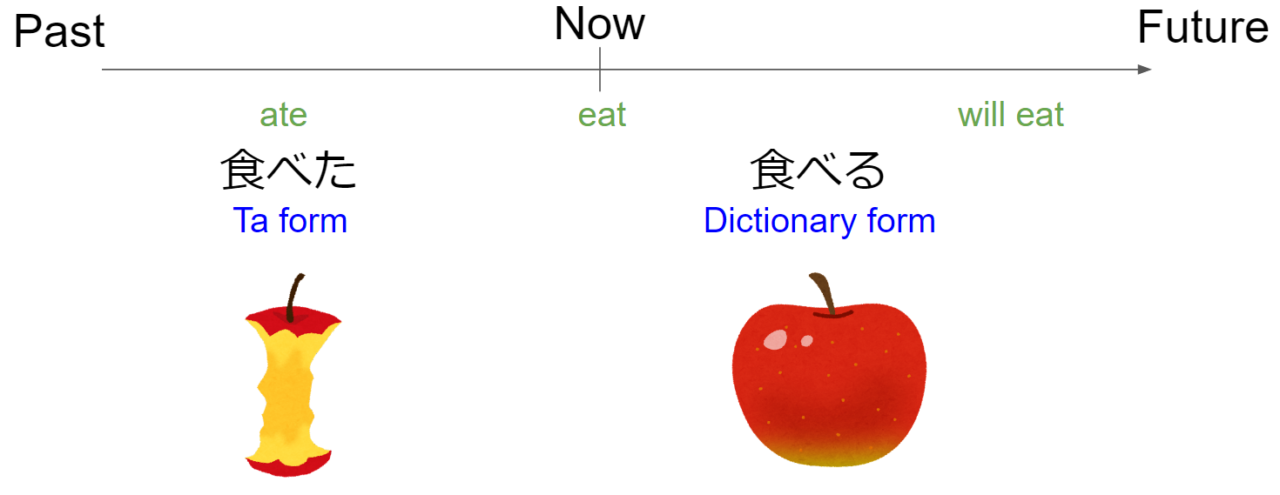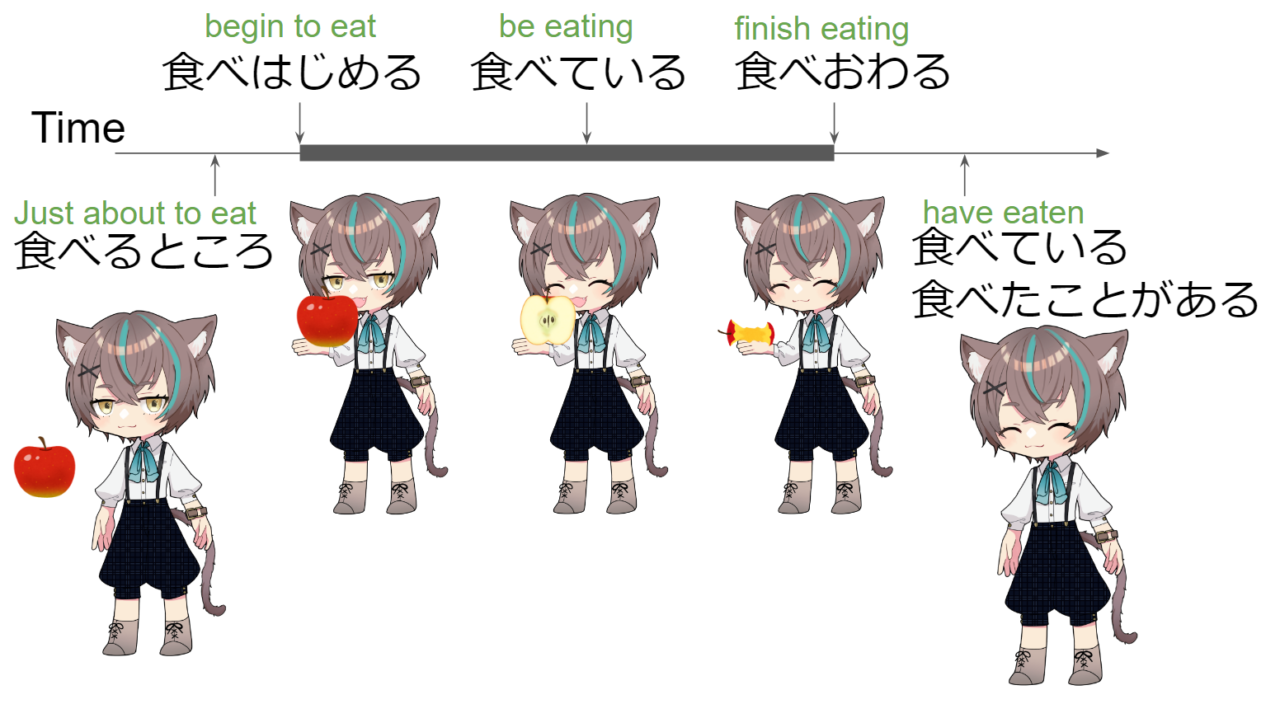

Verbs express the action or existence of things.
All of the Japanese verbs end with a “u” sound.
| Japanese | Hiragana | How to read | How to read |
|---|---|---|---|
| 歩く | あるく | aruku | walk |
| 食べる | たべる | taberu | eat |
| 来る | くる | kuru | come |

In Japanese, there are 3 types of verbs below.
The words end with う, つ, る, ぬ, む, ぶ, く, ぐ or す.
e.g. 歩く(aru-ku), 読む(yo-mu)
The words end with “iru” or “eru“.
e.g. 見る(m-iru), 食べる(tab-eru)
The words end with “くる” or “する“.
e.g. 来る(kuru), する(suru)


There are exceptions that end in “iru” or “eru” but are classified as Godan-verbs, but I won’t cover them here.



There are 8 conjugation forms below.
This form has affirmative meaning and is often used at the end of the sentence.
This form is the verb ends with “nai” which represents the meaning “not“, used for negative sentences.
This form is the verb ends with “masu” which gives the sentence a polite meaning. We don’t use it much in conversations with family and friends.
This form is an important form used when creating various grammatical forms.
I will explain the variations of the Te form on another page.
This form expresses past events, past events leading to the present, and their results.
This form expresses the precondition. “Aば, B” means “If A, then B”.
This form expresses intention, often translated as “Let’s” or “be trying to”.
This form represents strong instruction.
食べる: to eat
| Conjugations | Japanese | Romaji | Meanings |
|---|---|---|---|
| Dictionary form | 食べる | tab-eru | I eat |
| Nai form (Negative form) | 食べない | tab-enai | I don’t eat |
| Masu form | 食べます | tab-emasu | I eat (polite) |
| Te form | 食べて | tab-ete | *next table |
| Ta form (Past form) | 食べた | tab-eta | I ate |
| Ba form (Subjunctive form) | 食べれば | tab-ereba | if I eat, |
| Volitional form | 食べよう | tab-eyou | Let’s eat |
| Imperative form | 食べろ | tab-ero | Eat (strong) |
| Japanese | Grammatical role | English |
|---|---|---|
| 食べて | request | Eat |
| 食べてください | polite request | Please eat |
| 食べて、寝る | describing 2 activities | eat and sleep |
| 食べている | action in progress result of a change | be eating have eaten |
| 食べてもいい | permission | you can eat |
| 食べてあげる | do for you/someone | eat (for you/someone) |
| 食べてくれる | do for me | eat (for me) |
| 食べてみる | challenge | I’ll try (to eat) |


*There is no future tense in Japanese




| English | Romaji | Japanese (casual saying) |
|---|---|---|
| can eat | tab-ereru | 食べれる |
| can not eat | tab-erenai | 食べれない |
| could eat | tab-ereta | 食べれた |
| could not eat | tab-erenakatta | 食べれなかった |
| should eat | tab-erubeki | 食べるべき |
| should not eat | tab-erubekijanai | 食べるべきじゃない |
| should have eaten | tab-erubekidatta | 食べるべきだった |
| shouldn’t have eaten | tab-erubekijanakatta | 食べるべきじゃなかった |
| might eat | tab-erukamo | 食べるかも |
| might not eat | tab-enaikamo | 食べないかも |
| might have eaten | tab-etakamo | 食べたかも |
| might not have eaten | tab-enakattakamo | 食べなかったかも |
| want to eat | tab-etai | 食べたい |
| don’t want to eat | tab-etakunai | 食べたくない |
| wanted to eat | tab-etakatta | 食べたかった |
| didn’t want to eat | tab-etakunakatta | 食べたくなかった |


この記事が気に入ったら
フォローしてね!
Comment